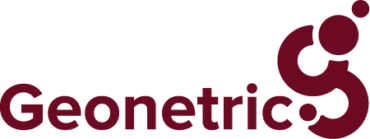Google’s latest helpful content update provides healthcare digital marketing teams with an opportunity to revisit findability and content strategies.
What Google is trying to achieve with the helpful content update
The new helpful content update from Google promises a robust people-focused change to how users search. Artificial intelligence takes a greater role in what appears on search engine results pages after being trained to think and analyze like the average user.
Educating artificial intelligence to be a much smarter version of traditional search algorithms serves three purposes:
- Ensuring the user receives the most accurate content for their search query.
- Removing irrelevant, false and harmful information from the first page of results.
- Allowing newer, more relevant sites and pages to rise in ranks faster than previously possible.
Google says that based on its testing, the update will have a greater initial impact on online educational materials, arts and entertainment, shopping, and tech-related content. This impact is due to the much higher amounts of accessible content for these industries. That does not mean the update will overlook healthcare.
Artificial intelligence never stops learning; as this update ages, it will become more refined and broad-reaching. It is not a matter of if; it’s a matter of when.
Sitewide analysis
One of the most interesting elements of this update is that it targets the whole site rather than individual pages. It will no longer be enough to hide lower quality, unoptimized content on separate pages to avoid dragging down stronger pages. Likewise, creating several pages irrelevant to the user to attract higher rankings is even less of a valid tactic than before.
The entire site must provide a strong, quality experience. This means you must address every aspect of your content to ensure success.
Over 50 possible points of impact when measuring helpful content
An important first step in identifying the most likely impacted content would be to study what Google believes should be considered when measuring content.
So far, Google has mentioned over 50 indicators of what constitutes helpful content across several title updates, including the helpful content update, product review update, core update and panda update.
The majority will have some impact on healthcare organizations. The key themes that Google appears to be stressing are your audience, expertise, credibility and the users’ wants and needs.
Artificial intelligence provides increasingly relevant results
To provide people-first rankings, Google turned to training artificial intelligence. This allows for a much more nuanced, relevant search experience than traditional search algorithms. In many ways, this method achieves what the search is intended for with greater accuracy—giving the most relevant results to the user.
The amount of content on the internet makes it necessary for search engines to rely on increasingly sophisticated systems. This ensures that the content that ranks in the top spots is accurate and helpful.
Artificial intelligence continues to learn even after launch, making it increasingly difficult for poor or false content to trick its way into the top search results spot. It’s an organic system. Even if something accidentally ranks, that might change next week.
This is not Google’s first use of artificial intelligence. However, it is their largest and a clear sign that this is the direction of updates moving forward.
We can’t predict the long-term ramifications of thinking algorithms. Still, we can confidently say that these early stages will cause massive fluctuations, traffic spikes, and declines for many organizations.
Reduced findability impacts conversion rates
If you have not kept up to date with optimization best practices, this update might hurt more than others because it’s redefining your findability.
If Google believes that your site no longer offers the most relevant or beneficial content, you will see fewer conversions. That’s because users will have a harder time finding your services when searching for local healthcare options. Pages that once ranked in the top spot in search engine results pages may now rank lower or completely vanish from the first page.
If you haven’t already, now is a great time to analyze your current data. Traffic fluctuations will have a ripple effect on all forms of conversions. This includes on-site data like phone inquiries, phone scheduling and online scheduling. It also impacts off-site data through how many users call, seek directions, or visit the site through business listings.
Consider every data point.
Ensure findability
How can you ensure that your findability optimization remains high-quality or benefits from the helpful content update? Use these steps:
- Refresh your local keyword portfolio
- Ensure that page titles and meta descriptions are updated regularly
- Refresh business listings to reflect on-site information
- Optimize for the three key tenants of local:
- Locality
- Relevancy
- Actionability
The more hyper-local you can be with your on-page and meta content, the more relevant your site appears to Google. If your site currently lacks actionability, locality and relevancy, you could be accidentally competing with national brands and terms that do not serve your local audience. Appearing for the wrong search terms, outside of your coverage area can significantly impact your organic reach.
Likewise, suppose your business listings become out of sync with on-site location and provider information. In that case, Google will determine that these listings are low quality and refer users to your competition instead.
SEO experts are split on the Update impacts
As with any algorithm update, the impact will differ for every site, and it may take days or months to start seeing changes. Some experts in the field claim that the update has already rolled out for their site, and they see minimal traffic fluctuations. Meanwhile, users in the article’s comments report drastic drops in their overall user base.
While the update is still fresh and fully rolling out in the first days of September 2022, the consensus is that there is no consensus. The only absolute for this update is to take inventory of your current on-page and meta content, determine weaknesses or gaps and optimize your most important service lines, locations and providers.
Make sure your target audience will see your content
Determine whether your website content will outlive the helpful content update. We believe you can address the greatest shifts in findability by asking these content strategy-focused questions:
- Does each section and page serve the user’s needs?
- Does your site have an audience that would find the content useful if it came directly to you?
- Does the content serve the genuine interests of visitors, or does it guess what might rank well in search engines?
- Is the content written by an expert or enthusiast who knows the topic well?
- Does the content provide unique, insightful analysis or interesting information that the user cannot find anywhere else?
- Is the content easy to read and understand?
- Would you feel comfortable trusting this content for issues relating to your health?
- Is the content optimized to answer actual user questions so that someone reading the content leaves feeling like they’ve had a satisfying experience?
Answering “yes” to these questions means you’re probably using a people-first approach to your content strategy. Answering “no” to any of these questions means you must rethink your strategy and the content you’re creating.
Remember, high-quality content in one place and low-quality content in other places could keep your site from a high SERP ranking. Google wants your content to go beyond the bare minimum yet remain concise. Your organization must provide as much context as possible without going off-topic. This balancing act requires a sound content strategy to succeed.
Developing and maintaining high-quality content
Performing a content audit can help determine if your website has content gaps and opportunities to improve by demonstrating your expertise on healthcare topics. During the audit, consider whether your content follows best practices for web writing. That means you keep your content simple and understandable, scannable, user focused, optimized for search, and accessible.
Use natural language
Web writing best practices will also cover the Updateupdate’s emphasis on using natural language. Google can better understand when content relies heavily on targeting keywords at the expense of sentence and header structure.
Reflect on the main goals of your previous content optimization efforts. A major red flag would be if you were trying to integrate as many arbitrary keywords as possible. This is where seeing content through a user’s eyes can be particularly beneficial.
Seek user feedback about your content
Data does not always tell the whole story about your website content. Evaluate your content’s usefulness to real people through a user feedback form or user testing. This approach helps you gather qualitative data to determine if your content is helpful.
Next steps for your organization
If all of this seems overwhelming and potentially revolutionary, you are right. As Google and other search engines increase the integration of artificial intelligence, the deeper we reach into unknown territory.
The most important first step is a thorough, thoughtful optimization audit that considers findability, content strategy and technical SEO for the user experience. Without this, you will be guessing which content is already helpful. Often, we take the user for granted when determining what works. This is especially true when organizations are stretched thin and need to focus on many different pain points simultaneously.
Enlisting the help of an external agency can be extremely beneficial. Not only are you acquiring the aid of experts in the field, but you are also bringing fresh eyes to your site that may see what familiarity hides.
The experts at Geonetric provide a collaborative partnership in every step of the optimization process, including assessments, creation and optimization of findability and content, user testing and overarching user experience audits. Rather than taking on the full weight of this update on your own, reach out and let’s discuss your specific needs.



